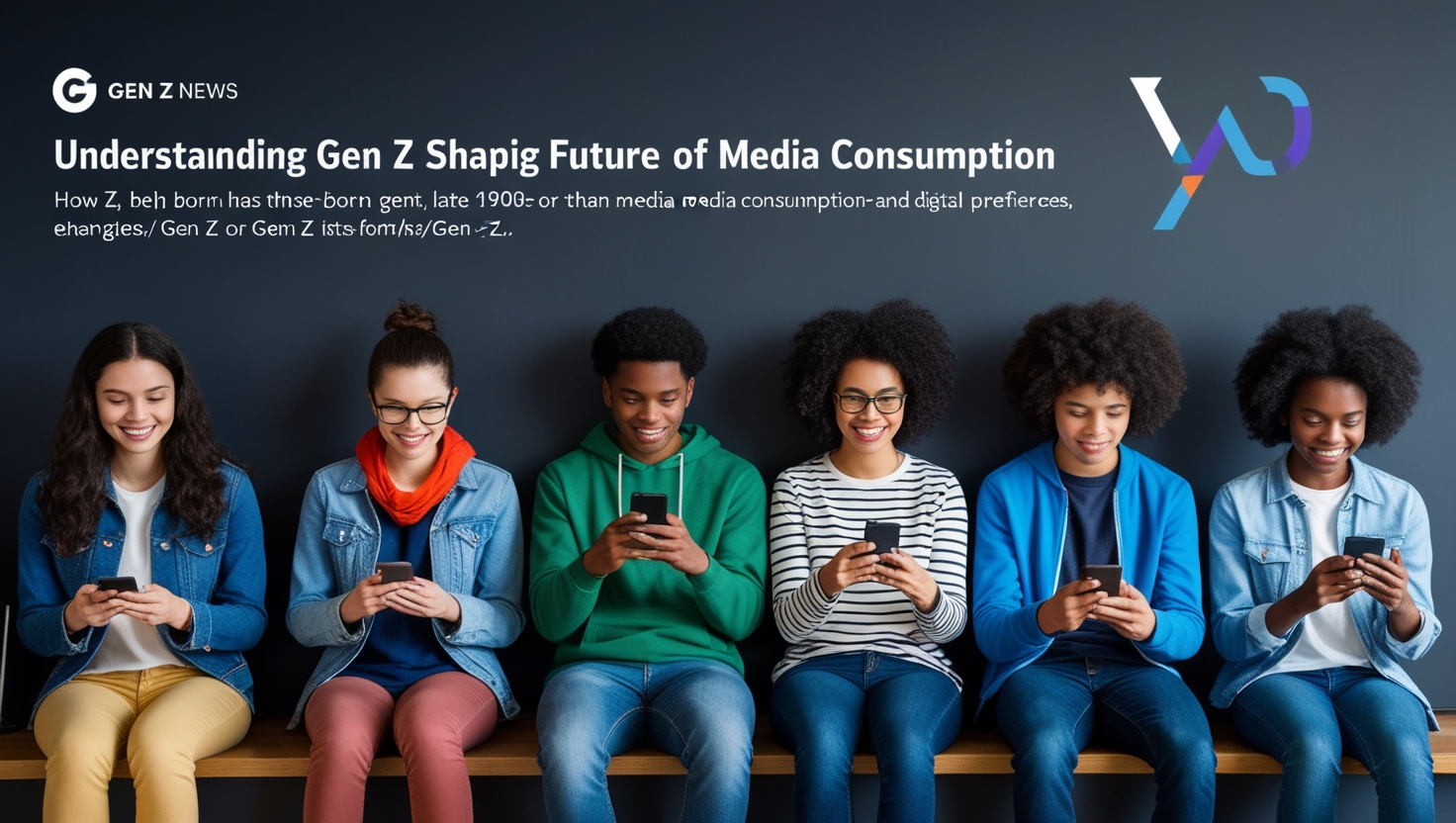Understanding Gen Z Media Consumption Habits
Gen Z, defined as those born from the late 1990s to the early 2010s, is rapidly transforming the media landscape. Having grown up in an era saturated with digital innovation, this generation has unique media consumption habits that differ significantly from those of previous generations. The pivot towards digital platforms is especially pronounced as Gen Z favors mobile devices over traditional forms such as television and print media. Resources like Gen Z News provide essential insights into the nuances of these evolving preferences.
Unlike their predecessors, Millennials or Gen X, Gen Z’s approach to media consumption is characterized by a thirst for immediacy and interaction. Studies suggest that around 74% of Gen Z spend their free time online, with social media platforms dominating their daily routines. This preference highlights their need for on-the-go accessibility and real-time engagement, challenging media producers to adapt their communication strategies to remain pertinent in this fast-paced digital age.
The Rise of Short-Form Video Content
The meteoric rise of short-form video content marks a significant shift in how Gen Z engages with media. TikTok, Instagram Reels, and Snapchat have spearheaded this revolution, offering users bite-sized entertainment that is easily digestible and infinitely engaging. According to Variety, TikTok, in particular, has garnered a staggering 1 billion monthly active users by 2022, underlining its monumental influence in digital media.
This surge underscores Gen Z’s attraction to formats that deliver content quickly and efficiently. The platform’s success is primarily attributed to its algorithm-driven content, which personalizes user experience by curating videos that match individual interests. As a result, brands and content creators are increasingly tapping into this potent medium, crafting video narratives that capture their audience’s attention within seconds, aligning perfectly with Gen Z’s penchant for fast-paced and visually stimulating content.
The Demand for Authentic Narratives
Beyond the entertainment value, Gen Z’s media preferences are heavily influenced by the quest for authenticity. Unlike earlier generations who might have been swayed by glossy marketing and polished narratives, Gen Z seeks genuine stories that resonate personally. This generation prioritizes transparency and sincerity, steering explicit content that feels contrived or superficial.
To meet this demand, content creators increasingly focus on real-life stories and diverse experiences. This evolution enhances the relatability of the narratives and cultivates a deeper connection with audiences. Additionally, leveraging platforms prioritizing user-generated content can catalyze a sense of community, as users appreciate and engage more with content that reflects their experiences.
Embracing Diversity in Media Content
Since Gen Z is the most varied generation to date, they anticipate that the media they consume will reflect this diversity. Companies and media organizations are better positioned to engage Gen Z by embracing this inclusivity. The growing desire for content representing various cultures, lives, and experiences shows the significance of varied storytelling. As Forbes emphasizes, adopting various narratives is a potent tactic for increasing a brand’s visibility and cultivating brand loyalty among Gen Z audiences. This acceptance of diversity dives into meaningful cultural discussions and goes beyond superficial depiction. A more inclusive community is created by media organizations that elevate different viewpoints and give marginalized stories a forum. This strategy creates a more engaging media environment that appeals to all viewers and is consistent with Gen Z values.
Impact on Marketing Strategies
As marketers aim to capture the lucrative Gen Z market, they must tailor their strategies to resonate with this demographic. This involves exceeding conventional advertising techniques and engaging Gen Z on platforms where they are most active especially social media. Messaging must be authentic, dynamic, and woven into daily digital interactions.
Moreover, interactive content, influencer partnerships, and campaigns that invite user participation can significantly bolster brand resonance with Gen Z. By placing value on authenticity and creating opportunities for Gen Z to contribute to the narrative, brands can bridge the gap between their products and this discerning audience. Essentially, marketing to Gen Z requires a shift from transactional to experiential marketing, urging brands to create authentic experiences rather than just messages.
Future Implications for Media Companies
As Gen Z’s influence grows, media companies must adapt to their evolving preferences. Failure to do so could result in losing relevance in an increasingly competitive digital market. Innovation centered around technology, content authenticity, and diversity will be pivotal for media companies striving to stay ahead.
Successful media entities will likely be those who understand and preemptively adapt to Gen Z’s shifting paradigms. Investing in research and development to create more personalized and inclusive experiences will be integral. By evolving alongside Gen Z’s preferences, media companies ensure their survival and thrive amidst the ever-changing tides of the digital landscape.
